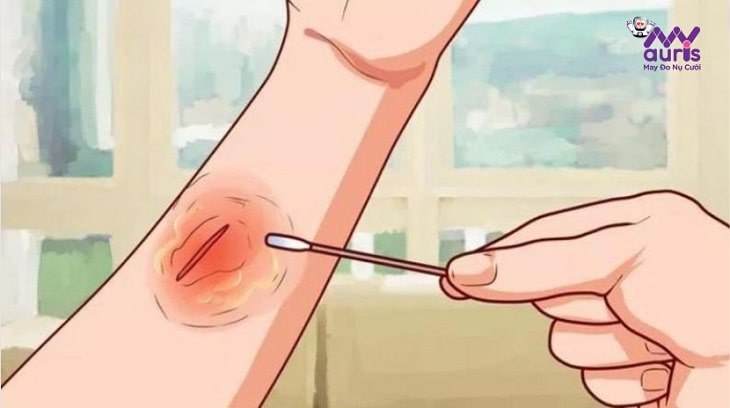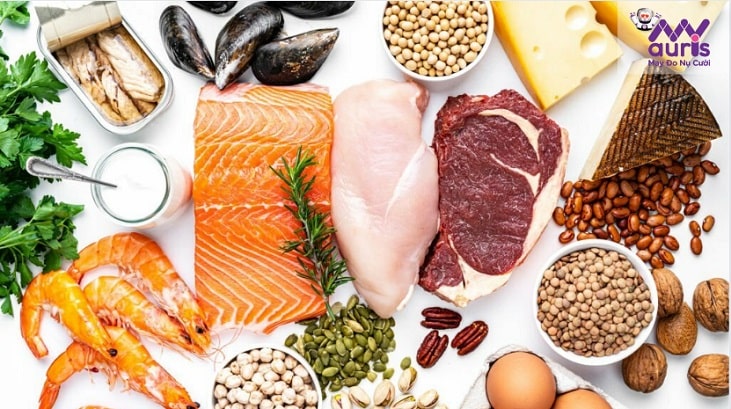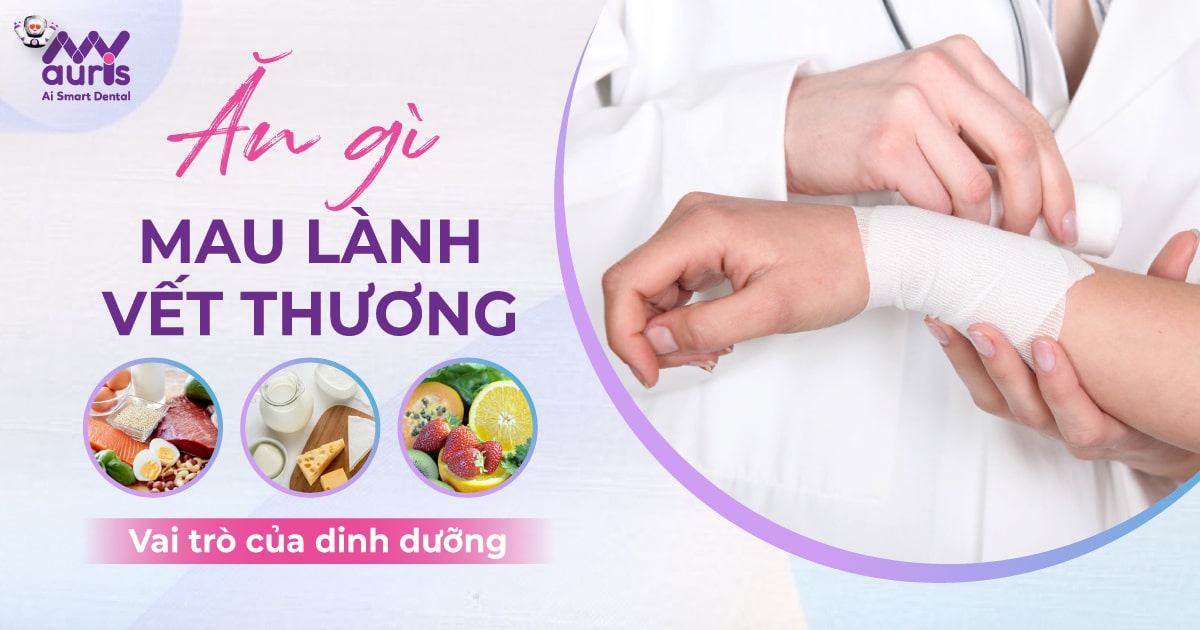Caring for wounds to heal quickly is one of the important conditions to ensure your health is good every day by eating a nutritious diet and cleaning the wound properly. Therefore, what you eat or abstain from when injured is something that patients need to pay attention to in order to build new tissues quickly and effectively.
The nature of the healing process
The healing process of a wound will include 3 stages: The stage of resisting bacterial invasion; granulation tissue stage to fill the wound. The final stage is the epidermal regeneration stage, this is also the stage where the wound is completely healed.
Whether the healing and scarring process of a wound is fast or slow, ugly or beautiful will depend on factors such as:
- Nature of the wound: small, shallow wounds will heal faster and may not leave scars. On the contrary, in cases where the wound is deep and festering, the possibility of scarring is high.
- Proper and timely wound treatment will help the wound heal quickly and avoid infections and pus.
However, another factor that slows down the healing process and creates scars will be affected by an inadequate or inadequate diet. form of foods leading to protein deficiency, vitamin deficiency, selenium and zinc, etc.

Why you need to pay attention to your diet to heal wounds quickly
After understanding the nature and stages of wound healing, nutrition plays an important role in wound care and healing. Poor nutrition or during the healing process can lead to decreased endurance and slower wound healing.
The purpose of wound healing is the process of replacing injured tissue with new tissue produced by the body, which requires increased consumption of energy and nutrients. When the body sustains an injury, it releases stress hormones and metabolism that provides the injured area with the nutrients it needs to heal. Furthermore, if this phase lasts long and the body is not provided with adequate nutrients, it will quickly fall into a state of malnutrition.
Depending on the condition, it will cause the body to break down protein to use as energy, reducing the supply of amino acids needed to maintain protein in the body to heal wounds. On the other hand, malnutrition not only prevents wounds from healing, but also affects low muscle mass index (BMI), at which point wound healing will be delayed.
Therefore, a diet to heal wounds quickly is a condition that you need to meet to ensure adequate energy supply as required.
What to eat to heal wounds quickly?
Some of the following nutrients will play an important role in wound healing, including:
Protein supplementation
Protein or protein is the basis for maintaining and repairing muscle tissue Low protein intake will cause a decrease in collagen development and slow down the wound healing process. On the contrary, providing an appropriate amount of protein will help the wound heal quickly cup.

Provides energy to the body
The main sources of energy for the body are carbohydrates and fats produced by collagen synthesis. Accordingly, the energy requirement for healing will increase with the size and complexity of the wound.
Fat
Fat includes saturated and unsaturated fats, and is an important fuel in wound healing A concentrated and safe source of energy. Good sources of fat to promote wound healing include meat, products made from whole milk, cheese, ice cream, yogurt, etc.
The most important thing is to maintain the body’s vitality during the wound healing process until the wound is completely healed. On the contrary, people who are underweight should try to gain weight to normal levels.
Provide L – Arginine
L – Arginine is an amino acid that plays a role in synthesizing structural proteins, which the body needsmore protein so providing L – Arginine is necessary.
To supplement arginine is to increase protein metabolism, help reduce muscle loss and synthesize collagen. From there, it helps increase the durability of the wound and helps the wound heal quickly.
Provides vitamins A and C to the body
Vitamin C plays a role in the synthesis of collagen with cross-links in the complex as well as the formation of new blood vessels. Vitamin C is found mostly in fruits and vegetables, especially oranges, grapefruits, tomatoes and vegetables.
Vitamin A helps reduce inflammation in wounds and stimulates collagen synthesis. Sources of vitamin A are found in milk, cheese, eggs, fish, dark green vegetables, red fruits and fresh vegetables.

Supply zinc and selenium to the body
Zinc is a trace element, found in small amounts in the body, especially playing a role in wound healing. In addition, zinc also participates in the synthesis of protein and collagen. On the contrary, when healing wounds without zinc, cell production will decrease. Dietary sources of zinc include red meat, fish, and shellfish such as shrimp, or dairy products, chicken, poultry, and eggs.
Iron is a mineral that provides oxygen to wounds. Therefore, iron deficiency can reduce the ability to heal. Furthermore, iron deficiency can impair collagen production and wound strength.
Drink plenty of water
Water is an important factor in what you eat to heal wounds quickly. Furthermore, moisturizing is one of the ways to heal wounds. If the skin is dehydrated, it will be less elastic and more susceptible to damage.
Dehydration will reduce the efficiency of blood circulation, thereby reducing the supply of oxygen and nutrients to the wound. Therefore, you need to provide your body with water every day.
In short, foods such as vegetables and fruits that contain lots of protein and healthy fats will help wounds heal quickly. Therefore, a healthy diet will reduce inflammation, improve the immune system and provide energy to help the body recover.
Above is useful information on how to take care of yourself when injured as well as learn what to eat to heal wounds quickly. If you want to learn more about the service, please contact usContact My Auris dentistry directly, the doctors will give you more detailed advice!
Kim Dung





